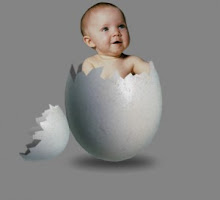I love rains. I’ve always loved the rainy season.
As a kid, I would eagerly wait for the first monsoon showers in the month of June. Floating paper boats around with friends, getting thoroughly drenched in the torrential downpour for hours together; ah, those good old innocent days!
I still love rains. There is absolutely nothing like sitting in the balcony with a hot cuppa tea, listening to the pitter patter raindrops, watching them lash against window panes, uprooting trees around, thundering with all their might and showing man what an infinitesimally small and helpless creature he is in front of nature’s fury. And of course, rains are supposed to be one of the most romantic things on earth!
But today was different. Completely different. No paper boats, no cuppa tea, no pitter patter, and surely nothing romantic; Instead, for the first time ever in my life I was wishing so badly for the rain to stop.
September 24th 2010
At 6.40 pm, I decided to call it a day and bade goodbye to my colleagues in office. Just when I stepped out on my Honda Aviator (it’s an awesome bike by the way), it started drizzling lightly. I chose to ignore the drizzle, as the day had been pretty hot otherwise and I estimated I would reach home in 30 minutes, ample time before it starts heavily (if at all). Turned out I was wrong. Within 5 minutes, the rain turned bad. I have driven in rains before, so I thought I would get through this as well.
Again, turned out I was wrong. The rain only got bad to worse and I really wanted to get out of it quickly. But unfortunately, I had to stop to fill fuel on the way. At the petrol bunk, there were several motorists who had halted just waiting for the rains to stop. Instead of doing the same, I just filled in fuel and decided to brave through the downpour. A wrong decision.
I went on for a while, but after a point it got so bad that my vision was beginning to get compromised and I desperately was looking out for some shelter. As Murphy’s Law would necessitate, there was none around. No shops, no petrol bunks, no bus stops, just a long stretch of road lay ahead of me. I somehow managed another 10 minutes very slowly, trying hard to see what was in front of me and finally reached a place where I could see a lot of bikes parked. So I too stopped, parked my bike there and decided to wait for the rain to reduce. Another wrong decision. There was no real shelter there; all of us just had to stand under a tree!! All I had was my helmet for protection.
We were standing right outside the police academy on Hosur main road. The entrance to the police academy was sloping slightly upwards and as a result water was gradually getting accumulated where we were standing. All of a sudden the security guards over there opened the two front gates. Immediately, water started gushing out of the gates with so much force, that it was as though the floodgates of a dam were opened up. The force would have been enough to run a turbine and generate electricity, in fact! Within minutes, the water was almost knee deep at that place and a few of the bikes got half submerged. Luckily mine was parked at a higher elevation, so was better off.
At this point, I realized that it was absolutely futile to fight against Mother Nature and decided to wait right there under the tree till it stopped raining. I would have waited for almost an hour there, just getting drenched. It was freaking cold, especially as I did not even have a warm jacket. And this is the point when, for the first time in my life, I was wishing so badly for the rain to stop.
Finally, when the intensity of the downpour reduced a bit, I decide to leave. I had to wade through knee deep water with the bike, for about 20-30 metres to get onto the road itself. And when I did get onto the road, I was faced with yet another obstacle. Heavy Traffic Jam. Sigh, I resigned to my fate.
Somehow I got through the ordeal, fighting my way through the traffic, the water flooding, the potholes and the unruly motorists. By the time I reached home it took me 2 hours for a journey of 30 minutes, I was soaking wet, almost frozen, teeth shivering, hands so numb that I couldn’t even feel my fingers. But yeah, I was there. Safe and Sound.
So much for a rainy day in Bangalore. But yes, I still do love rains!
Here are some pics:


